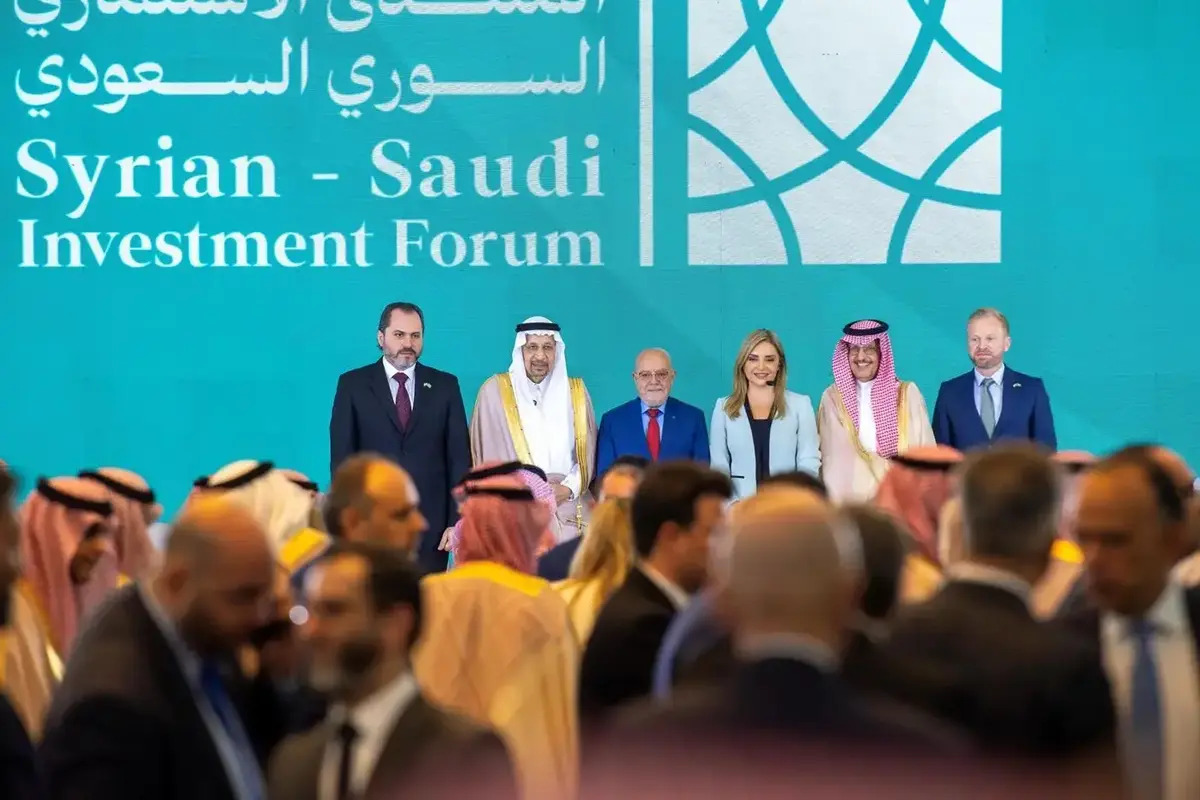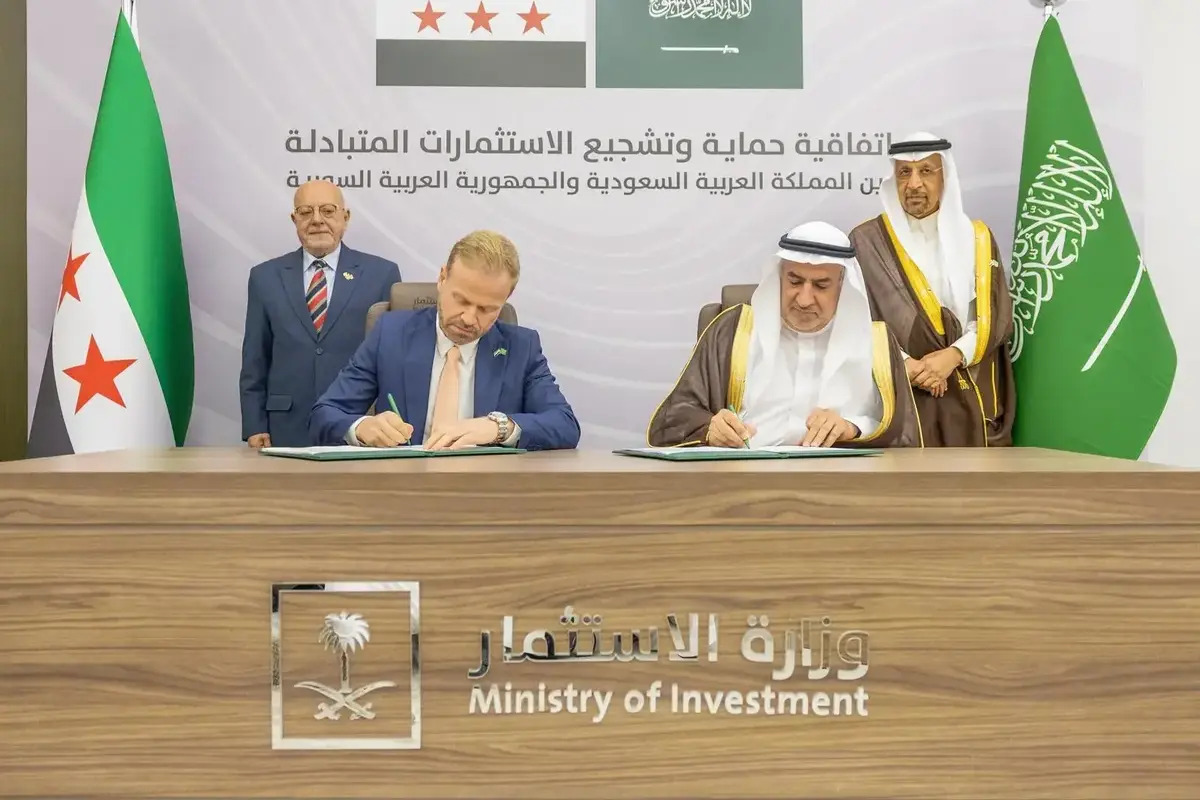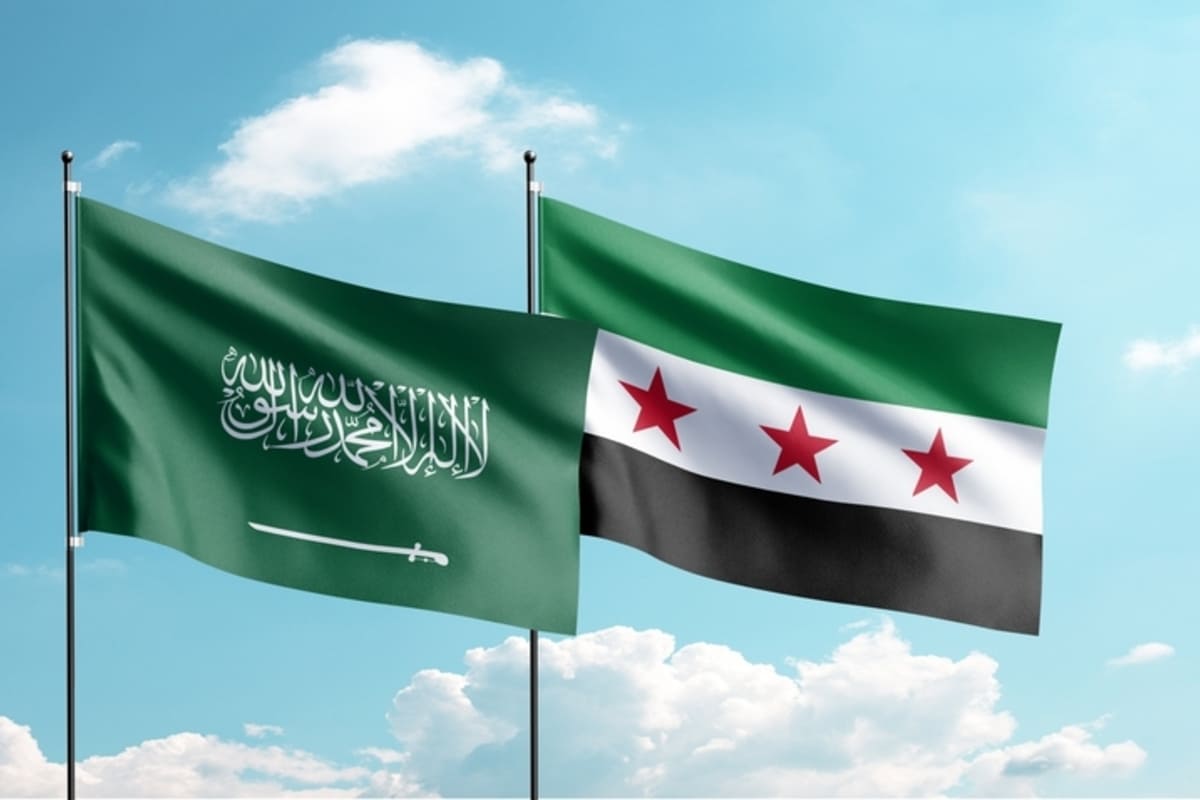The grant forms part of Saudi Arabia’s wider $6.4 billion investment package for Syria’s rebuilding
Saudi Arabia has officially granted Syria 1.65 million barrels of crude oil in a significant gesture aimed at aiding the war-torn country’s economic recovery and revitalizing its critical energy sector. This grant, made under the directives of King Salman bin Abdulaziz Al Saud and Crown Prince Mohammed bin Salman, was formalized through a memorandum of understanding signed by Sultan bin Abdulrahman Al-Marshad, CEO of the Saudi Fund for Development, and Mohammed Al-Bashir, Syria’s minister of Energy. The signing ceremony took place in Damascus and was also attended by Saudi Ambassador to Syria Faisal Al-Majfel and officials from both countries’ energy ministries, the Saudi Press Agency (SPA) reported.
Strategic support for Syrian energy sector
The 1.65 million barrels of crude oil supplied by Saudi Arabia is intended to boost the operation of Syrian refineries, helping them achieve greater operational and financial sustainability. This move reflects Saudi Arabia’s broader commitment to supporting the reconstruction of Syria’s shattered economy and infrastructure, particularly in vital economic sectors. The grant is part of the Kingdom’s efforts to improve living conditions in Syria, support national economic development, and align with international goals such as the United Nations Sustainable Development Goals (SDGs) for the region.
Following nearly 14 years of devastating civil war, Syria’s energy infrastructure has suffered severe damage, and the country now faces stark energy shortages. Before the war, Syria was an oil-exporting nation capable of meeting its own energy needs, but the prolonged conflict and international sanctions have crippled production and exports. Although there has been some progress, including Syria’s recent export of 600,000 barrels of heavy crude oil from the port of Tartus—the first official export in 14 years—the nation’s energy sector remains fragile with ongoing electricity shortages affecting millions of Syrians.


Renewed economic engagement
This oil grant is part of a larger wave of renewed Saudi economic engagement with Syria under the new Syrian government. Saudi Arabia has played a key role in reintegrating Syria into the Arab political and economic fold after a decade of near isolation. Alongside Qatar, Riyadh has helped settle Syria’s World Bank debt, unlocking access to international funding necessary for reconstruction. Saudi Arabia also pledged around $2.9 billion toward infrastructure and real estate projects in Syria earlier in 2025 as part of a broader $6.4 billion investment package aimed at stimulating sustainable economic development.
Moreover, Saudi Arabia and Syria have signed agreements to boost cooperation across various energy sectors including oil and gas, petrochemicals, electricity, regional grid integration, and renewable energy. These efforts are designed to foster closer ties between the two countries and support Syria in rebuilding critical infrastructure and achieving long-term energy security.
Saudi Arabia’s initiative to provide oil aid to Syria is indicative of shifting geopolitical dynamics in the Middle East. The Kingdom’s renewed engagement signals a strategic pivot to support Syria’s reconstruction and move away from previous alliances that isolated Damascus.
This deeper collaboration between Saudi Arabia and Syria also aims to support regional stability and economic revival by integrating energy grids and investing in sustainable energy projects.


Read more: Saudi Arabia, Syria sign new energy agreements for solar, wind, and oil development
Saudi Arabia’s investment initiatives
Syria’s oil sector has undergone significant changes pre- and post-conflict. Before the civil war in 2011, the country produced approximately 380,000 barrels of oil per day, primarily from fields in the northeast, which are now under the control of Kurdish-led authorities. The war decimated production capacities, destroyed infrastructure, and led to severe international sanctions, exacerbating Syria’s economic decline.
In the context of reconstruction, Saudi Arabia is playing a broader role beyond merely providing oil grants. The country is actively investing in various sectors of Syrian infrastructure, including real estate, telecommunications, and health. Notably, Saudi charity KSRelief is overseeing 422 projects in Syria that focus on health and food security, with investments exceeding $500 million.
Diplomatically, Saudi Arabia has taken steps to reopen channels with Syria, having reopened its embassy in Damascus in 2024. This move has facilitated key diplomatic meetings between Syrian officials and international leaders, including efforts to support the removal of U.S. sanctions against Syria. These diplomatic efforts have opened pathways for increased foreign investments and humanitarian aid.
An important development in this partnership is the energy cooperation agreement signed in July 2025, which outlines extensive collaboration between Saudi Arabia and Syria in areas such as oil, renewable energy, electricity, and regional energy integration. This memorandum of understanding signifies a commitment to modernizing Syria’s energy infrastructure and policies.
Despite these efforts, Syria continues to face significant economic challenges. The country’s GDP shrank by nearly 70 percent during the war years, and although recovery efforts are underway, many Syrians still endure energy shortages, often receiving only a few hours of electricity each day. The oil grant from Saudi Arabia aims to alleviate some of these immediate energy challenges.
